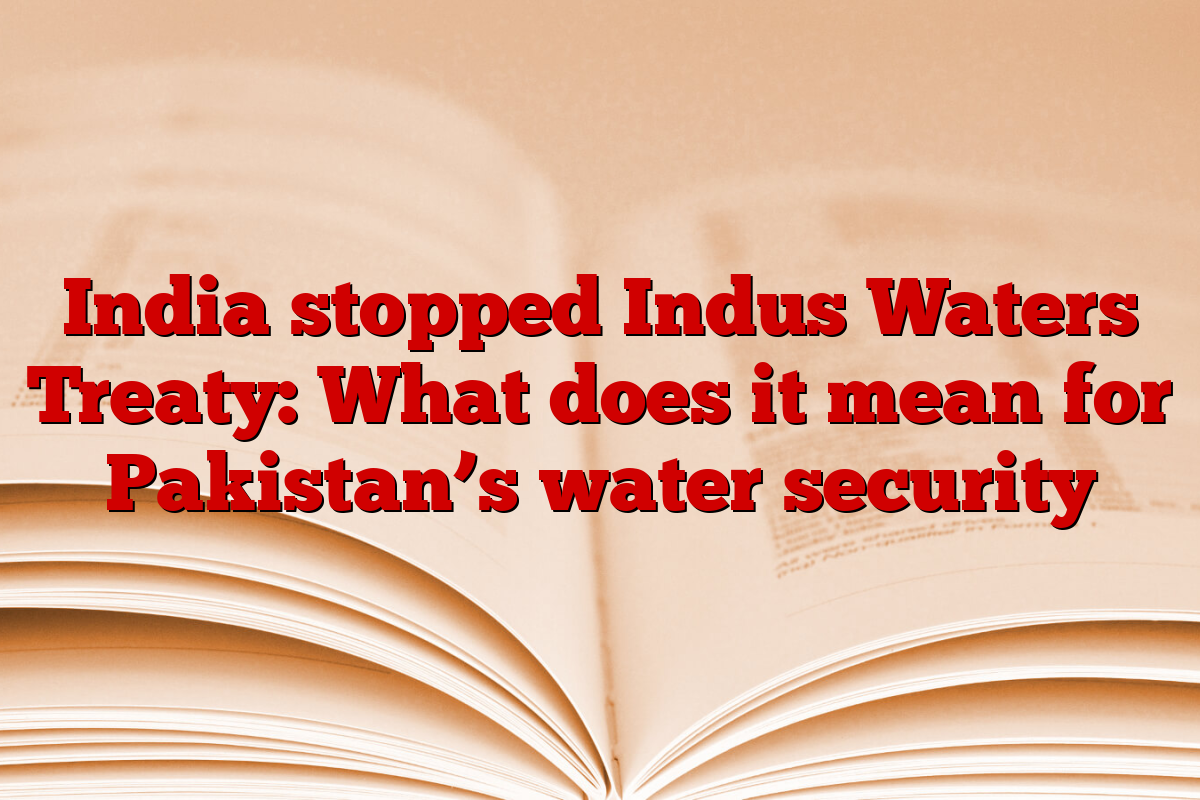On 22 April, a cruel terrorist attack in Pahalgam, Kashmir killed 26 innocent tourists. In response, India has taken strong steps to fight terrorism. One of the major functions involves suspending important parts of the Indus Water Treaty, which is a long-term water-sharing agreement with Pakistan. This adventure decision reflects the firm Rukh against India’s repeated cross-border terrorist attacks.
India stops Indus Water Treaty
The suspension of the Indus Water Treaty can lead to serious implications for Pakistan’s water security. The Treaty of 1960 flows from rivers arising in India and flows in Pakistan. By stopping its obligations under the agreement, India is taking advantage of a powerful geopolitical equipment that highlights security and mutual relations in the region. This can further increase growth and stress, as well as force Pakistan to re -evaluate its water management strategies in front of the growing regional pressure.
What does it mean for Pakistan’s water security
Pakistan’s water security remains critical due to its limited storage infrastructure. This makes the country particularly weak for any ups and downs in the flow of water. Without adequate storage, even slight disruption can severely affect the availability of water, which can reduce agricultural yields and cause macroeconomic instability.
Effect of hydroelectric projects on agriculture
India’s move to prevent its obligations under the Indus Water Treaty can disrupt the regulated flow of water from important hydroelectric projects such as the Krishnanga and Rathal. These projects play an important role in water supply during extreme farming season. Any disruption in their operation can have a direct and harmful effect on Pakistan’s agricultural sector, which is the backbone of its economy.
Strategic and political implications
The potential suspension of the treaty, which historically survived many conflicts, represents a significant increase in India-Pakistan stress. It also highlights the rising risk of water on becoming a flashpoint in their long -running disputes. This change can reduce regional stability and make water security an important geopolitical concern.
